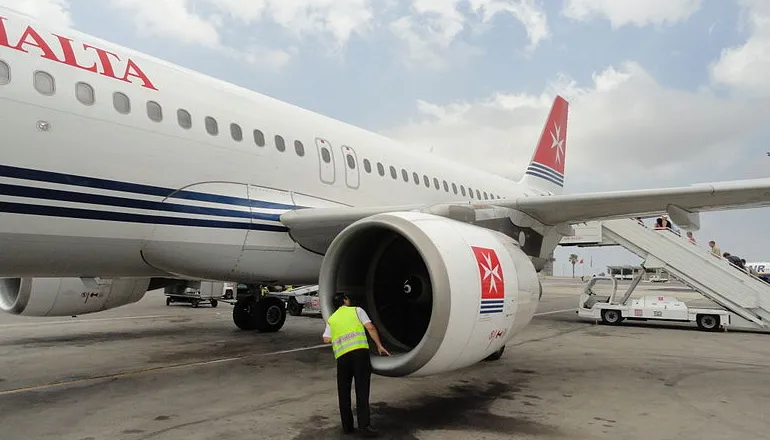How High-Quality Parts Ensure Aircraft Safety

Utilizing components of superior quality is essential to aviation safety. These components ensure dependable operation and reduce the likelihood of mechanical failures occurring if they are used. Within the scope of this article on aircraft operation and maintenance, the significance of high-quality components in ensuring the continued safety of airplanes is just one of the numerous issues that are discussed.
Contents
- 1 The Importance of High-Quality Components for Engine and Building Safety
- 2 Instrumentation and Avionics Systems Precision Engineering
- 3 Strict Certification and Testing to Meet All Regulations
- 4 Determining Reliability by Thoroughly Examining and Maintaining
- 5 The Cost vs. Safety Paradigm and Quality Prioritization
- 6 Aviation’s Future:
- 7 Conclusion
The Importance of High-Quality Components for Engine and Building Safety
Only high-quality materials will allow aircraft engines to last and perform well in the harsh conditions they operate in. The wing, fuselage, and landing gear all contribute to an aircraft’s structural integrity, which is why only the highest-quality materials and workmanship are used in their construction.
Titanium alloys and advanced composites are commonly used in high-end engine parts like turbine blades and combustion chambers because they can endure extreme heat and stress. An aircraft’s wings and fuselage are usually constructed from lightweight yet sturdy materials such as composites and aluminum alloys.
Instrumentation and Avionics Systems Precision Engineering
Avionics and equipment play a vital role in keeping pilots informed about the aircraft’s status and their environment. Because a failure can have dire implications, these systems rely on high-quality components to ensure accuracy and dependability.
A number of advanced avionics systems, including digital flight displays, flight management computers, and others, are dependent on components of the highest quality in order to function accurately and dependably. It is imperative that all of the instrumentation, including gyroscopes, altimeters, and airspeed indicators, be of the highest possible quality in order to provide the pilot with accurate readings.
Strict Certification and Testing to Meet All Regulations
To comply with regulations, components used in aircraft are required to undergo stringent certification and testing procedures. Parts of higher quality have a better chance of passing these tests, which are designed to ensure that they are safe for use in airplanes. Because of these regulations, airplanes are only allowed to use components of the highest possible quality, which significantly reduces the likelihood of mechanical issues and accidents.
Determining Reliability by Thoroughly Examining and Maintaining
The dependability and security of aircraft components depend on routine inspections and maintenance. The probability of mechanical problems that could cause accidents is decreased when using parts of higher quality since they fail at lower rates.
Aerial maintenance professionals specialize in repairing and inspecting airplane parts in accordance with stringent standards established by regulatory bodies. To minimize downtime and maintain the aircraft’s continuous safety and reliability, high-quality parts are designed to survive the demands of flight with less regular maintenance.
The Cost vs. Safety Paradigm and Quality Prioritization
Although high-quality parts may be more expensive initially, they can actually save money in the long run due to the reduced frequency of repairs and replacements. When you buy components of superior quality, you can ensure that they are reliable and safe. Aerial operators and airlines are aware of the importance of utilizing premium parts in order to maintain the safety and dependability of their fleets. By acquiring high-quality parts, airlines can lessen the likelihood of accidents and guarantee the aircraft’s safe operation.
Aviation’s Future:
New materials like carbon fiber composites and ceramic matrix composites are driving advancements in aircraft parts, offering increased strength and durability while reducing weight. Important parts of airplanes, such as wings, fuselages, and engines, are best made from these materials because they can withstand high temperatures, fatigue, and corrosion.
Thanks to innovations in manufacturing technology like additive manufacturing, complicated and optimized products are now within reach. As the aviation industry continues to evolve, high-quality components incorporating these cutting-edge materials and manufacturing techniques will remain essential for ensuring the reliability and safety of aircraft in the future.
Conclusion
The foundation of a safe and reliable aircraft is high-quality components. To guarantee safe flight, every component, from the robust engines to the advanced avionics, needs to work without a hitch. Aside from extending the life of the aircraft and improving its efficiency, investing in high-quality components lessens the likelihood of mechanical failures and accidents.
The aviation industry protects its passengers and employees and keeps its stellar reputation by putting quality first. Future generations will be able to depend on safe and reliable air travel because of this dedication to excellence, which goes beyond the present.



